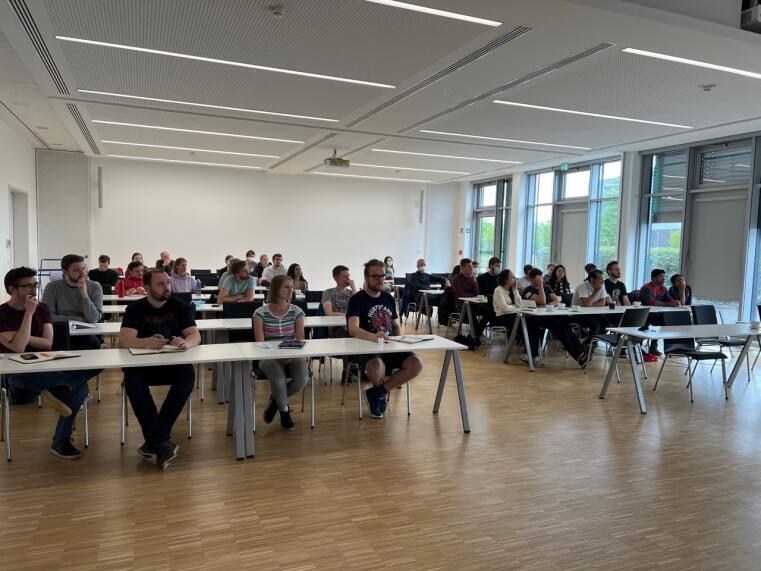Scientific Exchange
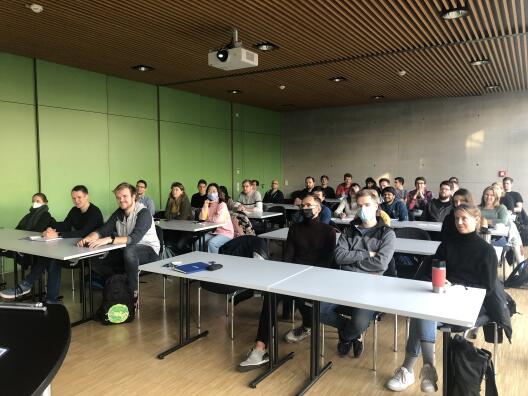
© CRC 1459 Research seminars
The graduate students organize a biweekly seminar and report on the progress of their research projects. This seminar will be held only among students without project leaders and by becoming a member of the RTG students self-oblige to participate regularly. The seminar aims to foster close collaboration between graduate students of different scientific backgrounds. It also helps them to self-evaluate their results and train scientific discussions in an interdisciplinary setting at the level of their peers. The presentation and discussion of results helps in solving scientific problems, especially on a technical and methodological level.
The doctoral students are responsible for the organization and the content. Scientific contributions are held in the form of talks of 15-20 min and topics comprise all areas of research conducted within the CRC, including techniques and methods as well as scientific background in the field. The detailed schedule is arranged by the graduate committee who will be elected from the students in a biannual manner and become part of the educational steering committee.
Photos
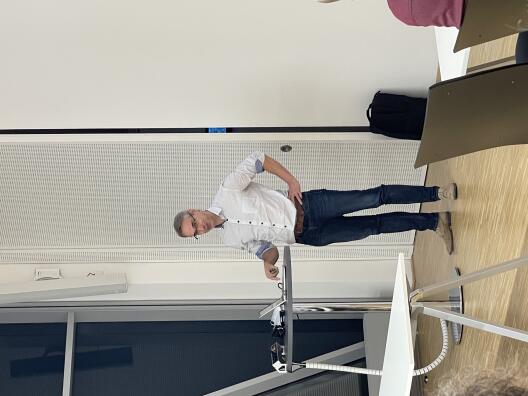
© CRC1459 Tutorials & Lectures
The RTG has established a lecture series, focusing on topics and concepts relevant to the CRC. The lectures are be given by project leaders of this CRC as well as guest lecturers from academia and industry who will be invited to the CRC to present their research.
The lecture series is essential to provide doctoral students in this group of rather different scientific backgrounds with up-to-date know-how in all areas of the CRC. Furthermore, the lecture series creates an opportunity for the students to get direct contact with the external experts and start building their academic and professional network. This event is open to anybody interested within the University network.
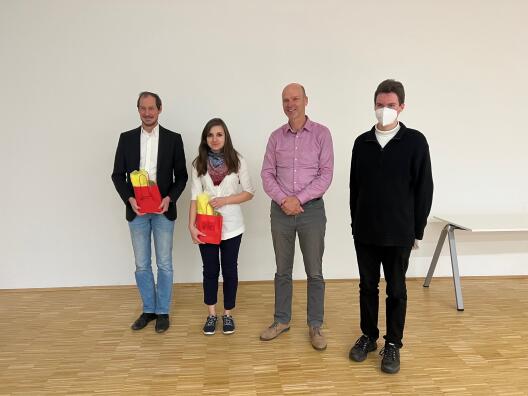
© CRC1459 Colloquium
The CRC1459 organizes biannual CRC1459 colloquia joining the Chemistry and Physics colloquia at University of Münster, thus bringing the two disciplines closer together. Renowned experts in the field of Chemistry and Physics will present their latest research related to intelligent matter and spark new ideas and discussions.
For more information click here.
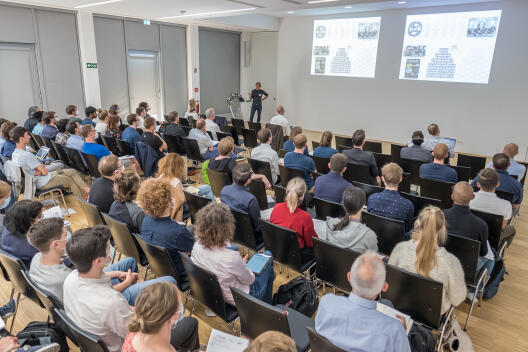
© Thomas Hauss MüSIM
The CRC1459 organizes an annual symposium with renowned international experts in the field of intelligent matter.
For more information click here.
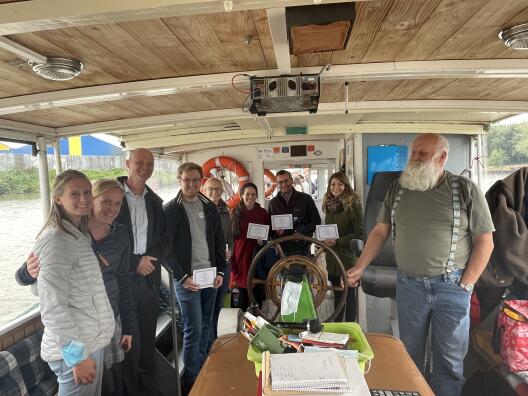
© CRC 1459 Retreats
Once every two years, all members of the Collaborative Research Centre meet at a retreat to update the research network on their projects, exchange ideas and ideally form new collaborations.
Professional Development
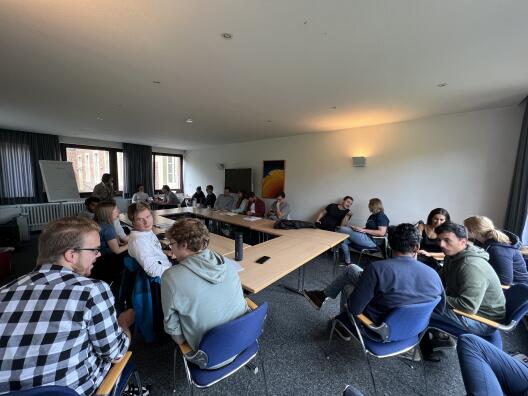
© CRC1459 Soft Skill Seminars
These personal development seminars may contain some of the following subjects:
- Good scientific practice
- Research data management
- Presentation training
- Scientific writing
- Working in a multicultural team
These are offered exclusively for doctoral students of our RTG but may be opened to members of other RTGs upon request. We will schedule them at the most appropriate time so that our doctoral students will gain the greatest benefit and be able to apply what they learned throughout most of their doctoral research. A familiar composition of participants in those events can further serve as team-building exercises.
Furthermore, our doctoral researchers benefit from the services of and events organized by the WWU Graduate Centre,
which itself offers further courses to all doctoral students and postdoctoral researchers at the WWU Münster.Additionally, the office of equal opportunities offers a variety of gender, and diversity-focused seminars for the entire WWU community and the Seminare M*i*T Perspektive series specifically targeted towards a female audience to specifically foster female doctoral researchers and postdocs, but also other female members of the University of Münster.
Workshops
A particular strength of this CRC is its laboratory infrastructure for state-of-the-art research in nanoscience. The new Münster Nanofabrication Facility (MNF) which is open to all research groups in the CRC is operating two central cleanrooms in the Center for NanoTechnology (CeNTech) and the Center for Soft Nanoscience (SoN).
Having first-hand experience with cleanroom work is not just a valuable qualification for the competitive career steps following a doctorate. It is also of strategic importance to bring the expensive tools into best use. Hence, widest awareness about the possibilities present in walking distance to practically all offices is desirable. To this end, early in their research projects all of our interested doctoral students have the opportunity to receive a cleanroom training giving them a complete overview of what is available to them in the course of their research. Those students who will not end up using the cleanroom facilities themselves are able to appreciate better what their collaborators are doing. A better idea of what is easy and what is challenging to realize even with modern nanotechnology will benefit the discussions about new ideas in RTG meetings such as the research seminars. An interdisciplinary cleanroom training course has already been established as pilot project.
First-hand experiences are of course not only useful when it comes to nanofabrication technology. Also, the understanding of advanced analytical methods is much deepened by training on the respective equipment. Thus, throughout their enrollment in this RTG doctoral students are offered workshops on especially relevant methods employed within this CRC, on average for two days per year. This way our students will gather substantial knowledge about a wide spectrum of methods much beyond the limited number of techniques each of them can realistically become a true expert on in the course of his/her research. Again, this improved understanding for each other’s methods will both result in a more profound collaboration within the CRC and turn out as distinguishing qualification for our students’ later careers. The choice of our workshops’ contents is driven by the doctoral students themselves.
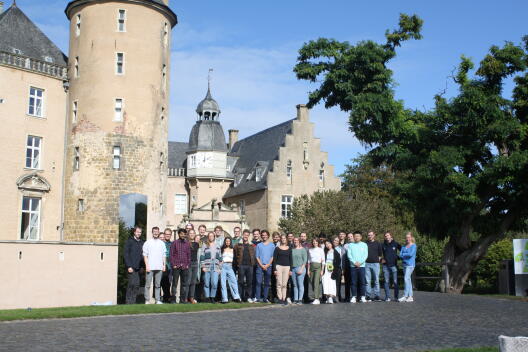
© CRC1459 CRC1459 RTG Summer School
Every other year members of the RTG and the CRC´s management office will organize a one-week ‘summer’ school outside of Münster.
With concentrated sessions of lectures and soft skill seminars it will be a time of intense learning and exchange. More than in the regular seminar series it will allow a complete overview the state of the entire CRC. Oral presentations and posters prepared by the students can become milestones in the course of the doctoral research projects. And talks by international experts in our field of research present a valuable networking opportunity in preparation of the next stepping stones in our students´ careers.
Finally, the retreat-like environment will provide the ideal setting for team building measures as an important part of the program.
The next summer school will be held in summer/fall of 2026.
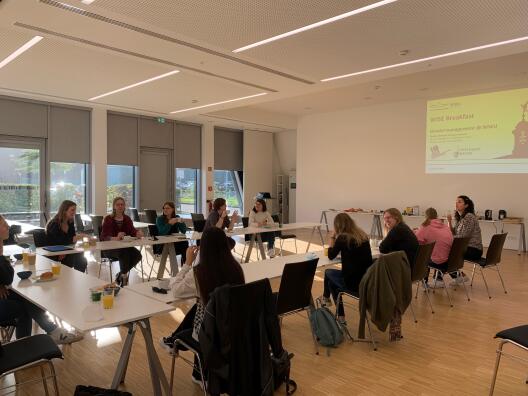
© Christina Kriegel Women in Smart Emerging Matter (WISE) Programme
WISE was established by the CRC 1459 as an integral programme to support female researchers at all career levels within the CRC.
Through this programme, we intend to implement significant measures within the CRC to encourage participation and sustain career opportunities of further and existing female high potentials on all career levels, from female scholars to professors. We focus on those actions that are complementary to the programmes of WWU Münster and are especially centred on investigation and change management of gender imbalance and gender issues.
We are convinced that successful senior women act as role models for young women in science, representing topical advisors as well as personal examples. As such we´ve established WISE café and WISE breakfast events with the aim of building a support and mentoring network to strengthen the ties within the research community and to provide guidance on the junior researcher´s career path. In this informal environment we aim to enable discussions between members of our CRC 1459 RTG and female visiting scientists but also female professors within our CRC apart from technical tutorials or lectures. Topics include the senior researchers´ path into science, common hurdles for female scientists and how to overcome them, the role of a mentor and network, work-life-balance, and much more.
Through the support network we will also offer skill training courses in CRC related topics to female students to improve the gender balance on a doctoral and master student level.


